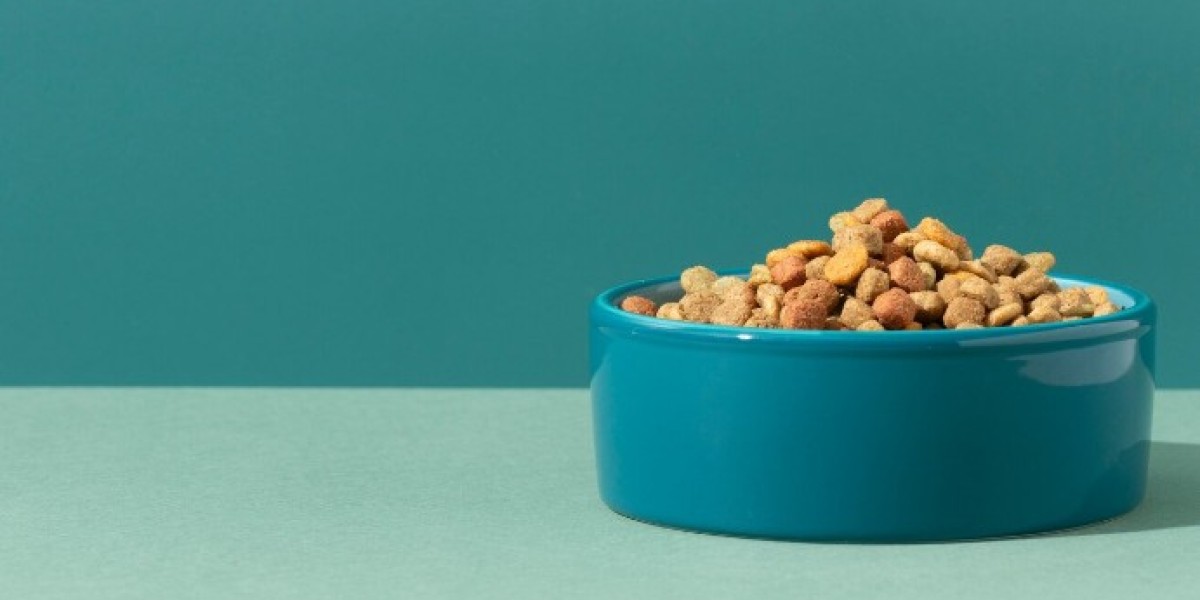When it comes to feeding your furry companion, ensuring they get the best nutrition is a top priority. Unfortunately, the world of dog food is filled with myths and misconceptions that can make choosing the right diet for your pet confusing. As pet owners and those who trust pet day care providers to look after their dogs, it's crucial to separate fact from fiction. Let’s debunk some of the most common dog food myths and set the record straight for your beloved pup.
Myth 1: Grain-Free Diets Are Better for All Dogs
One of the most pervasive myths about dog food is that grain-free diets are inherently superior. While some dogs may benefit from grain-free formulas due to specific allergies or intolerances, grains such as rice, oats, and barley can provide valuable nutrients like fiber, vitamins, and minerals.
The Truth:
Grains are not inherently bad for dogs, and most dogs digest them without any issues. In fact, grain-free diets have been linked to certain heart issues in dogs, specifically dilated cardiomyopathy (DCM). Always consult your veterinarian before making drastic changes to your dog’s diet, especially if you’re considering grain-free food.
Myth 2: By-Products in Dog Food Are Dangerous
“By-products” on a dog food label often get a bad reputation. Many pet owners believe by-products are harmful fillers or low-quality ingredients that offer no nutritional value.
The Truth:
By-products are not inherently harmful. They include organ meats like liver and kidney, which are rich in nutrients and are a natural part of a dog’s diet. High-quality dog food brands use by-products responsibly to provide additional nutrition. As long as the by-products come from reputable sources, they are perfectly safe for your pet.
Myth 3: Homemade Dog Food Is Always Healthier
Many pet owners assume that preparing homemade meals for their dogs is healthier than buying commercial dog food. While homemade meals can offer control over ingredients, they aren’t automatically better.
The Truth:
Homemade diets can lack essential nutrients if not carefully balanced. Dogs require specific vitamins, minerals, and macronutrients that can be hard to achieve without expert guidance. If you’re considering a homemade diet, consult a veterinary nutritionist to create a balanced meal plan.
Myth 4: All Human Foods Are Safe for Dogs
It’s tempting to share your food with your furry friend, but not all human foods are safe for dogs. Some ingredients commonly found in our meals can be toxic or harmful to them.
The Truth:
Foods like chocolate, onions, garlic, grapes, and xylitol (an artificial sweetener) are dangerous for dogs. When in doubt, stick to food and treats specifically designed for dogs. If you’re leaving your dog at a pet day care, make sure the staff is aware of any dietary restrictions or toxic foods.
Myth 5: Raw Diets Are the Best Option for All Dogs
Raw diets, which include uncooked meat, bones, and organs, have gained popularity among dog owners. Advocates claim that raw diets mimic what dogs would eat in the wild, making them a healthier option.
The Truth:
While raw diets can work for some dogs, they come with risks such as bacterial contamination (e.g., salmonella or E. coli) that can harm both your dog and your family. Additionally, raw diets can lack balance if not carefully prepared. Always consult your veterinarian before switching to a raw diet, especially if your dog interacts with other pets at a pet day care facility where food safety is critical.
Myth 6: Expensive Dog Food Is Always Better
Price is often seen as an indicator of quality, leading many pet owners to believe that the more expensive a dog food brand, the better it must be.
The Truth:
While some premium dog food brands do use high-quality ingredients, not all expensive foods are necessarily better for your dog. It’s essential to look at the ingredient list, nutritional content, and your dog’s specific needs rather than just the price tag. High-quality nutrition is available at various price points.
Myth 7: Dogs Should Only Eat One Type of Dog Food
Some pet owners stick to feeding their dogs the same food for years, believing that consistency is key to good health.
The Truth:
While sudden changes in dog food can upset your pet’s stomach, variety can benefit their health. Rotating between high-quality foods can provide a broader range of nutrients. If you plan to switch your dog’s food, do so gradually to avoid digestive issues.
Myth 8: Table Scraps Are Fine as Long as They’re Healthy Foods
Giving your dog a bite of chicken or some vegetables from your plate may seem harmless, especially if the food is healthy.
The Truth:
Feeding table scraps can lead to bad habits, such as begging or overeating. Additionally, even healthy foods can upset your dog’s stomach if they’re seasoned or prepared with oils and spices. It’s best to stick to dedicated dog food or treats formulated for their dietary needs.
Myth 9: Dogs Can Be Vegan or Vegetarian
As plant-based diets gain popularity among humans, some pet owners wonder if their dogs can thrive on a vegan or vegetarian diet.
The Truth:
Dogs are omnivores, meaning they can digest both plant and animal-based foods. While it is possible for dogs to survive on a carefully balanced vegan or vegetarian diet, it’s challenging to meet all their nutritional needs without supplements. Always consult a veterinarian or pet nutritionist before considering this option.
Myth 10: Puppies and Adult Dogs Can Eat the Same Food
Some pet owners believe that puppies and adult dogs can share the same dog food, thinking there’s no significant difference between their dietary needs.
The Truth:
Puppies require more calories, protein, and certain nutrients for growth and development than adult dogs. Feeding a puppy dog food specifically formulated for their life stage is crucial for their health. Similarly, senior dogs may need food tailored to their aging bodies. When using pet day care services, ensure the staff understands your dog’s life stage and dietary needs.
Myth 11: Wet Food Is Bad for Dogs’ Teeth
There’s a common misconception that wet dog food is harmful to dogs’ teeth because it doesn’t provide the same abrasive action as dry kibble.
The Truth:
Dental health depends on overall hygiene, not just the type of food. Regular brushing and dental chews are far more effective at keeping your dog’s teeth clean. Wet food can be a great option for dogs with dental issues, picky eaters, or those needing extra hydration.
Myth 12: Dogs Know When They’ve Had Enough to Eat
Many pet owners believe their dogs will stop eating when they’re full, so they leave food out all day (free-feeding).
The Truth:
Dogs don’t always self-regulate their food intake and can overeat if given unlimited access to food. This can lead to obesity and related health problems. Controlled portions based on your dog’s age, size, and activity level are essential. If your dog spends time at a pet day care, inform the staff about their feeding schedule to avoid overfeeding.
Myth 13: All Dog Food Brands Are the Same
Some pet owners assume that all dog food brands are interchangeable and that ingredient differences don’t matter.
The Truth:
Not all dog food brands are created equal. Cheaper brands may use fillers, artificial preservatives, and low-quality ingredients that provide little nutritional value. Always read labels, and look for foods that meet AAFCO (Association of American Feed Control Officials) standards.
Myth 14: Pet Day Care Staff Will Handle All Dietary Needs
While pet day care facilities often cater to your dog’s basic needs, some owners assume staff will automatically provide customized meals for their pets.
The Truth:
Most pet day care providers require owners to bring their dog’s food to ensure consistency in their diet. Make sure to communicate any specific dietary requirements or restrictions with the day care staff to ensure your dog’s nutritional needs are met.
Conclusion
The world of dog food is filled with myths, but being an informed pet owner is key to ensuring your dog’s health and happiness. From understanding the role of grains to recognizing the risks of raw diets, separating fact from fiction will help you make the best choices for your furry friend. Whether you’re selecting a new dog food brand or entrusting your pup to a pet day care, always prioritize their unique needs and consult professionals when in doubt. A healthy dog is a happy dog—and debunking these myths is the first step toward optimal canine care!









